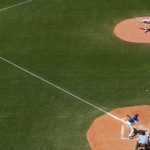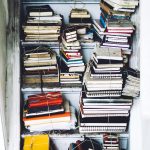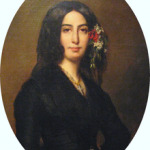“What did you find?” asked my boss, who I called Pastey, for being as white as cod and half as interesting. His real name was Leslie, or ‘Les. I found that quite fitting as well.
Pretty much what we expected. The warehouse is full of arms, and it’s set up for distribution. Mahsud’s brother got me in as the pregnant wife of one of the accountants. I made it as far as the chem labs. Doesn’t look like they’re far enough along yet to have had anything to do with the blasts in Cairo, but they’ve made progress. I held the new little cell phone to my cheek while counting the cash handed to me by a smallish man who was vaguely familiar. I’d made it as far as Cairo, and this fellow was one of our Service’s ‘friends’ deep in the souk, the daily market. “But I lost them when I got caught.”
“What precisely do you mean by ‘caught?'” Pastey sounded perturbed.
“Well, I’d rather counted on my pregnancy disguise making me immune. But while I was in the lab a guard came in and my story didn’t wash with him. His Arabic wasn’t very good, so I confused him just enough to raise suspicion. They took me out of town but I managed to get away.” My boss didn’t stir with the tale; he seemed to doubt at times my tales of swashbuckling heroism, but he suspended disbelief at least for awhile. I’ve got a heady imagination, and an ego to match, I suppose.
“Any samples from the chem lab?”
“No, they took them from me,” I answered.
“Did you blow cover?” he asked, sighing.
“Nope. They don’t know who I am or why I was there.”
“Well, that’s good, at least. How about, did you find any link back to Sadr?”
My turn to sigh. “No. If he’s connected, I found no evidence of it. Mahsud didn’t have any knowledge of any links to Jordan, even.”
Pastey was quiet. What we really needed, more than knowing the types of weapons produced or anything about the operation itself, was some trace of a connection to our main target: terrorist financier Abn al Sadr. Our best evidence tied him to multiple attacks in the West most recently, Amsterdam, for welcoming anti-Muslim sentiment in its free media. Before that, Istanbul, in retaliation for Turkey’s accession to the European Union. Before that was Rome, and before that, London. The Service believed, in fact, that my boys were trained in a Sadr-funded school.
Sadr’s connections and activities had a web-like quality, with multiple links to finance streams and banks around the world, and to the governments in the various countries where he operated. And the connections were not always illegal. He had a lot of layers, like an onion that’s not all the way rotten if you cut it a certain way, you’d see alternating layers of nice, white onion, and dark, black putrescence.
We needed hard evidence to go after him. He had squeaked out of capture more than once by showing his good side legitimate import-export, generally. He had also used his extensive government connections in the Gulf. He didn’t really make friends in poorer countries he just kept a stable of them on hand from the most influential places. He had led us on more than one dead end. Like this one in Sudan, unfortunately. But I was one lead, one footprint, one intercepted phone call away from taking Sadr out for good. It was my mission, and I knew I would put paid to his infamous streak of luck. Me, Nathalie Qadir, spy with a cause.
—***—
I’ve really no right to be so sure of myself. I was raised by conservative Muslim parents, in a strict immigrant family, and I was their only daughter. But confidence has been my secret weapon, my way around pain, around giving up or revealing information, even when I’ve been roughed up. I know I’m bound for better things. My imagination helps, too, because I find a way to humiliate those who would humiliate me. It has kept my brain active while I’ve had to endure things in the past, and I’m quite sure it will keep me warm and toasty in any sub-zero future. I’m madly suited for this life just, as I maintain, my mother would have been, had she not been born with invisible social strictures around her life tighter than any corset.
If you’d seen me eight years ago (owner of a marginal beauty salon in south London) you’d be excused for not divining my potential. I surely did not divine any such thing. I assumed I was in my element, and would stay there: owner of a hair shop, actor in community theatre, happy resident in a neighbourhood full of immigrants. Two things were true of my livelihood: one, my Palestinian origin meant that Arab customers were more likely to use my services. And two, for the very same reason, I was unlikely to draw many Anglo-Saxons into the shop. Ironic, because as much as I looked like a woman from the Middle East dark hair, eyebrows with actual depth, pretty brown eyes I felt 300% English. But my looks they marked me. Eh, what can you do? Buck everything? Fight it? Dye and pluck? No, not interested. I’m neither bitter nor conflicted about who I am I know it takes a strong person to be a bridge. And that, in fact, we bridges are lucky, as we are blessed with more than one viewpoint from the get-go.
But the points in my favour for a life of spying were legion, even if I didn’t know it myself, early on. I speak Arabic fluently it’s my first language, as I was born in the West Bank into a family of Palestinian peace activists. In London I stick out, with my dark eyes and skin, but among Arabs and others in the Middle East, I’m inconspicuous not particularly tall or wide or beautiful, neither horrendously ugly, short, or thin.
Those are the attributes given me by genes, and by my parents. But as it turns out, the attributes that best suited me were ones I’d learned in life, the ones I’d developed out of my own passion. I’m an actor, a thespian so I’d developed an ease with lying openly, comfortably, bald-facedly, any time I needed to do. As our drama teacher always told us it’s not pretending to be something or someone, but rather acting naturally in invented circumstances. Could anything be a more perfect training ground for disguising oneself for a job like mine? I can change the timbre of my voice, the angle of my posture, the thickness of my eyebrows all to fit those circumstances so that I’m not pretending. In fact, I’m often the most authentic one, and therefore the one who is most invisible, in any given room.
I might pretend to be weepy and sad, to gain access to someone’s trust; I might barge into a meeting as an uninvited rival, adding a volatile character into a scenario, in order to plumb its weak spots. I’ve been known to ham it up so much that my co-workers prefer to leave me on my own they can’t keep up. In acting classes, we always learned that you never say no in an improvisation but my more stodgy colleagues generally balk at such boldness, such creativity. I’m quite proud of my ability to adopt a convincing male swagger, to feign aggression even when I’m weaponless, or to feign hysteria convincingly.
Though I’d not set foot in Palestine until I was 31 and on a mission, to everyone I’ve ever known, I am Palestinian. We’ll dig into the sociocultural profundities of that at some other time, but it means a lot for my work. First of all, any disguise I assume is close to the original: at base, I’m an Arab. I’m particularly good at dressing up like someone else, because so much can be hidden underneath the mystifying clothing worn across the region. Hair hides in a turban or under a veil for men or women. I’m don’t have hips like a normal woman I’m rather more like a pencil box. This was a source of embarrassment in my school back in England but serves me quite well indeed when I need to dress as a man. The other key aspect of dressing up is what’s inside the clothes how I move my body. Years of acting in school and community theatre productions have given me the swagger or limp or stodgy walk I needed for any given character. I understand from experience and practice how bodies move, and how to get mine to do what I need it to do.
At one time, I had a Palestinian accent in Arabic, which stood to reason since the people who taught me to speak it were my Palestinian parents. But I’d always been fascinated by accents, and had worked steadily on that until I was a very capable mimic. This has come in tremendously handy and not just in community theatre. It’s no substitute for really scouting out a place, and especially for having a sense of a local culture, but it’s a passable start. People don’t pay as much attention as you might think, and they can be fooled quite easily by someone who just blends in.
So: an accomplished liar who changes personages like a chameleon and sounds like she needs to sound, anywhere she goes in the Arab world, in the first half of the 21st century, when spying on Arabs is all the rage. I was spot-on perfect for the job, before I even knew it.
—***—






